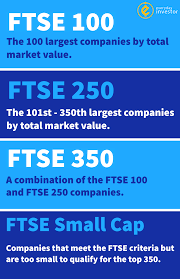
Introduction to FTSE
The Financial Times Stock Exchange (FTSE) 100 Index is a crucial financial indicator that tracks the performance of the 100 largest companies listed on the London Stock Exchange (LSE). Established in 1984, the FTSE 100 serves as a benchmark for institutional investors and a reflection of the UK’s economic performance. Understanding FTSE is essential for investors, analysts, and anyone interested in the dynamics of the UK economy.
Importance of the FTSE 100
The FTSE 100 is significant because it provides insights into the health of the UK economy and can influence investment decisions. A rise in the index often signals optimism about economic growth and corporate profitability, while a decline may indicate looming economic concerns. Given its composition of major players from diverse sectors, the FTSE 100 allows investors to understand market trends and sentiment.
How the FTSE 100 Works
The index is calculated based on the market capitalisation of the constituent companies, which are weighted accordingly. As of 2023, notable members of the index include companies like Unilever, BP, and HSBC. The index is updated regularly and is reviewed quarterly to ensure it accurately reflects the market. Changes can occur when companies meet specific entry or exit criteria, such as market size and liquidity.
Recent Performance and Trends
As of October 2023, the FTSE 100 has shown resilience despite global economic headwinds, including inflation and geopolitical uncertainties. Analysts report that sectors such as technology and renewable energy have been gaining traction within the index, indicating shifting investor sentiments towards sustainable growth. Financial analysts also observe that the performance of the index is closely linked with global economic factors, making it a vital barometer for investors worldwide.
Conclusion and Significance for Investors
In conclusion, understanding what FTSE means can significantly enhance an investor’s ability to navigate the complexities of the stock market. With its real-time updates and quarterly reviews, the FTSE 100 remains a pivotal component in assessing market performance in the UK and beyond. As we look to the future, keeping an eye on the FTSE 100 will be wise for anyone interested in how economic trends affect investment opportunities.
You may also like

Current Insights on Shell Share Price

The Importance and Relevance of MFC in Modern Development
